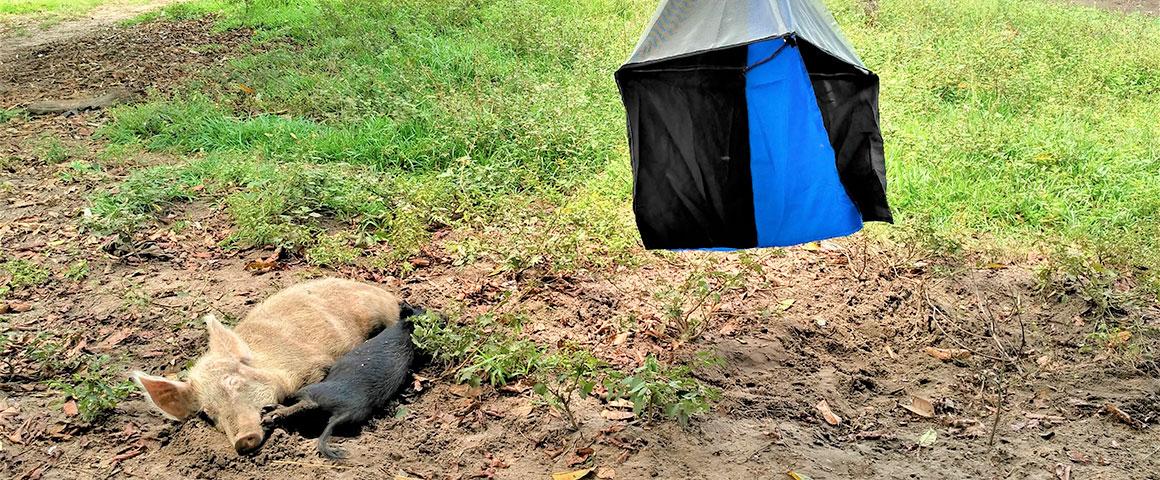- Home
- About us
- Research units
- Host-Vector-Parasite-Environment Interactions in Neglected Tropical Diseases due to Trypanosomatids
Host-Vector-Parasite-Environment Interactions in Neglected Tropical Diseases due - UMR INTERTRYP

Cochons faisant la sieste, à l'abri près d'un piège à mouches tsé-tsé, vectrices des trypanosomes au Burkina Faso. © G. Gimonneau, Cirad
UMR InterTryp has adopted a One Health approach, as part of a global drive to eradicate these neglected tropical diseases. It conducts research on various levels (gene, molecule, individual, territory, country, region), with a view to understanding the pathogen system better and assessing the risks. It is also working on longer-term studies of the mechanisms by which parasites, vectors and symbionts, and host mammals (man and animals) co-evolve as a result of global change.
It proposes prevention and control methods suited to the constraints found in developing countries surveillance tools tailored to the context, new therapeutic molecules, vector control and vaccine development.























